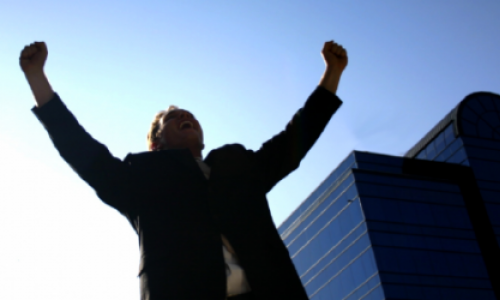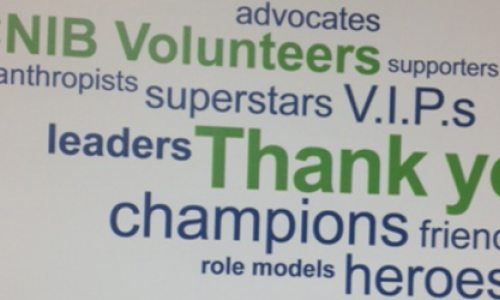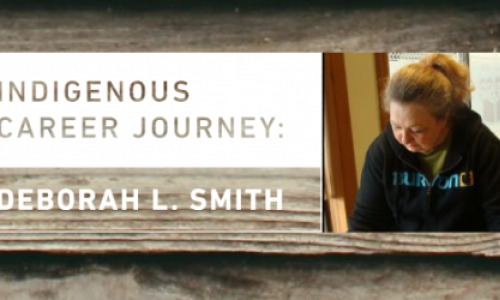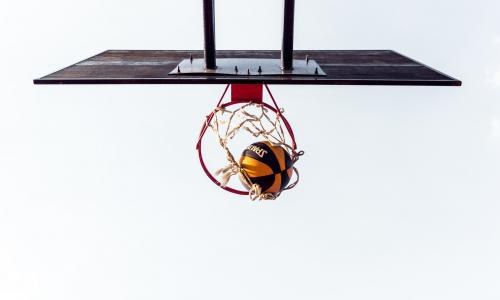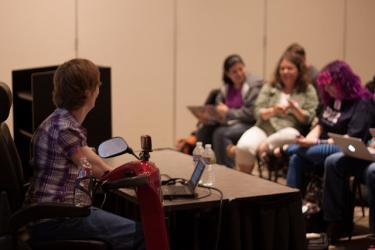
While sitting at the airport gate last July, waiting to board the plane to Portland and then onto San Jose where I was scheduled to deliver two presentations on web accessibility, I wondered, "How did I, an individual with a significant speech impairment and a physical disability, get here?"
I pulled out my iPad and made some notes, which I found a few days ago.
I asked myself again: how DID I get there – sitting at the gate, waiting to board a plane to the States to give two presentations?
I flashed back to one brief session that Mom and I spent with Fred, the guidance counsellor, during my last year at high school. Thumbing through the various university calendars and brochures, the Certified General Accountant program sounded somewhat appealing. I was good at math and I could take the courses via correspondence, which would be perfect because my family was moving to isolated rural living once I graduated. I could then establish a business and work from home as a CGA. That was the extent of my career planning. Seriously.
I did one year of the two-year program, but I slowly realized that I wanted more in life; something more than sitting alone in my bedroom, working on boring accounting assignments. (This was long before the internet and life as I know it today.)
One thing led to another and I found myself living on my own in a one-bedroom apartment in residence at Simon Fraser University atop Burnaby Mountain. After taking a course or two per semester for seven years straight, I graduated with my Bachelor of Arts (BA) with a major in psychology and a minor in Communications.
A minor in Communications. That is somewhat related to giving presentations; kind of. But that still didn’t fully explain how I was about to board a plane on my way to two speaking gigs.
Following a few twists and turns after graduating with my BA, I found myself giving the occasional presentation. However this was long before the text-to-speech software that I use today. Presentations were participatory: audience members took turns reading aloud text on the PowerPoint slides.
When presenting at one local conference, the laptop refused to communicate with the LCD projector. For the thinking-on-my-feet solution, I had attendees come up to the front, one at a time, to read aloud what was on the screen. Now that is a highly participatory session! For my next presentation I prepared acetate sheets for the overhead projector, as a backup plan. But I digress.
Life continued meandering until another twist came in April, 2005. I share this excerpt from my autobiography, I’ll Do It Myself:
I was asked to speak at the Social Planning and Research Council of British Columbia’s (SPARC BC), “Beyond the Obvious: Exploring the Accessible Community Dialogue”. My initial thought was But I don’t give speeches. I can’t. Since I was raised without the word “can’t “in my vocabulary, that was a fleeing thought. I quickly turned my thought to How can I do this?
I had been using the free computer software ReadPlease for a couple of years to proofread my writing. ReadPlease reads aloud text that is copied into the program. I thought, Maybe I could put ReadPlease onto my laptop and have it read aloud my speech for me. I hesitantly agreed to speak. Unsure if the technology would work, I took a printed copy of the speech with me, in case I needed someone else to read it on my behalf.
Finally, it was my turn to take the stage. Being on stage alone for the first time in my life, with two hundred eyes staring at me, I wanted to run. But, I didn’t. I gave my speech. When I was done, I left the stage, trembling. I had given my first ever speech! And the technology worked!
Afterwards something amazing happened. For the rest of the day people actually came up to me and spoke with me. I was heard for the first time. I was no longer invisible, no longer silent. It was an amazing, unexplainable feeling that I would like to experience again. I would like to give more speeches. I would like to be heard again.
Since that moment, I have delivered several more presentations. Each time I was heard again; an experience that has yet to get old for me.
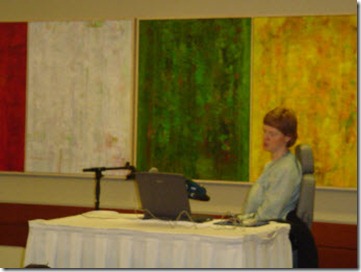
How did I get here?
By taking the less traveled road. For an individual with a significant speech impairment, being a motivational speaker is not the most obvious career choice.
By taking a deep breath, believing in myself and saying “Yes, I can!” to something least expected from someone who does not speak clearly.
By figuring out the technology, with much assistance and support from my husband Darrell, to make it possible for me to travel this path.
By surrounding myself with people who will not let me fail; people who see beyond my disability and push me to become all that I can be.
In a snapshot, that is how I ended up waiting for a flight to San Jose. And, to be honest, that is how I hope to get to visit more places and to deliver many more presentations.
For this reason I am beyond excited to announce my new site, my speaker site at GlendaWatsonHyatt.com.
By following along this path less traveled to be a motivational speaker, my intention is to encourage, to entice, to motivate you to move forward, to go for it, to strive for your potential and to live life more fully.
Please visit my speaker site for more information about this adventure. And, thank you for joining me in this amazing journey.









